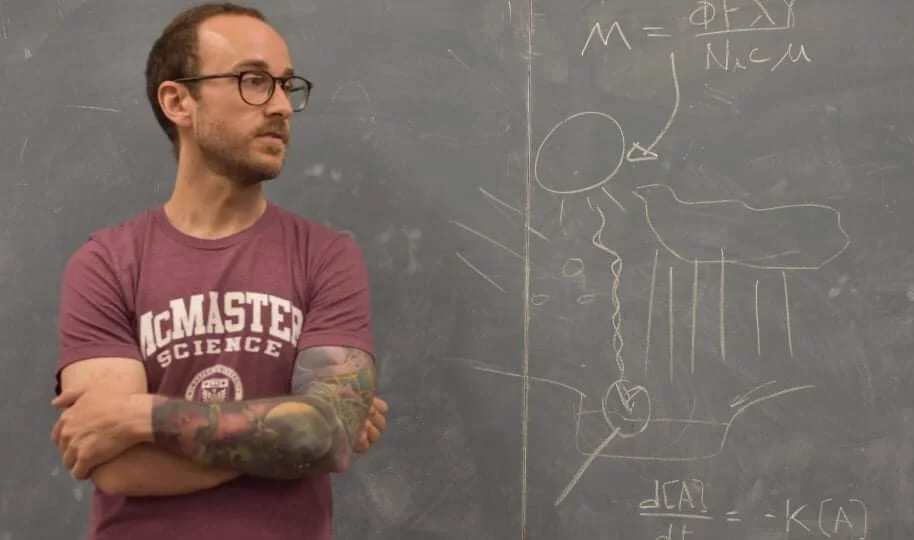I wanted to finish off this blog post series by discussing the science that I envision my lab doing, but I felt a bit conflicted about it. Not because I worry about anyone stealing my ideas—I really don’t care about that. It’s more that I don’t want to constrain my lab’s research goals too strictly. Scientific exploration requires freedom. Here’s what I mean:
Read MoreThere are many different approaches to scientific inquiry and experimentation. None are right or wrong, but your philosophy towards science will ultimately guide your lab’s research path - so it’s worth taking time to think about it.
What are some different approaches?
Read MoreWhat makes a research lab great?
This is the question I find myself asking as I prepare to open the Laboratory for Origins and Astrobiology Research (LOAR) in the fall of 2024.
My feeling is that it really comes down to creating an environment in which scientists can thrive.
Read MoreIt’s been 10 years, and I still get asked about once a month why I chose to become vegan. Clearly people are interested!
“Why would anyone be vegan?! Haven’t you heard of cheese?"–they say. Well, here, I summarize my experience into 6 lessons that I’ve learned since I changed my diet.
Read MoreIt’s always tempting to think of a relationship ending as a “failure.” But as long as you learned from the experience, it really isn’t a failure at all. How else are we to recognize our person when we meet them if we don’t go through trials with the wrong people?
Read MoreFor the past 6 years, I’ve been a MSc/PhD student in the Physics and Astronomy Department at McMaster University in Hamilton, Canada. Next month I’ll defend my thesis, and move to Baltimore, MD to begin working as a postdoctoral fellow at Johns Hopkins University. I find that big life transitions like this are good times to reflect. On top of this, my current department asked me to write a profile piece for the annual newsletter, so I thought I’d take it as an opportunity to reflect back on my experiences and what brought me to this career in researching the origins of life. I’ve pasted that piece into the blog post below, I hope you enjoy it!
Read MoreI’m writing this blog post as an autobiography. There may be some advice sprinkled in, but this isn’t an guide on how to successfully snatch a postdoc position. This is just my story, take it as you will.
Let’s start at the end of the story, like a Tarantino film. The happy ending: I was lucky enough to get 3 postdoc offers; one of which was a big fellowship and my top choice. Now, let’s roll back time.
Read MoreAs physicists, we often say “nothing can travel faster than the speed of light.” You may have heard the words "cosmic speed limit" before and perhaps even know the value—approx. 300,000 km/s. So when I say your shadow can travel faster than light, I don't blame you if your skeptic senses are tingling. But humour me, because shadows are one thing that can travel faster than light.
Read MoreI recently took a few online implicit association tests (IATs). These tests were originally developed by researchers at Harvard to explore the roots of unconscious thinking, and were later offered to the public so that individuals can gain more awareness of their unconscious preferences and beliefs. There is an IAT for race, sexuality, weight, age, gender in science, and more. I heard about IATs a few times in the past and was recently prompted to take one when I saw someone post their results.
Read MoreNeedless to say, the world didn’t end on November 19th, 2017. Nor did it on October 15th, 2017 or between September 20 and 23, 2017: the two previous doomsday predictions made by Christian numerologist and planet Nibiru conspiracy theorist David Meade.
So what gives? Is the date that Nibiru will actually impact or tidally disrupt the Earth sometime in 2018? Or is it actually never?
It’s never. Never is the answer.
Let’s start with the most obvious reason.
Read MoreJust how far is an astronomical unit (AU)? Such an enormous distance is not easy to comprehend. I could say, well, it’s the average distance from the Earth to the Sun. But nobody can actually travel from the Earth to the Sun to get a feel for that distance (and even a future space explorer would never travel it in a straight line). But maybe we can put this distance in terms of human experiences by asking: has anybody traveled an AU in their lifetime?
Read MoreSo you’re planning on attending grad school in physics and astronomy. Maybe you’re flush with confidence and belonging, maybe you’re anxious and worried you’re lacking in some manner, or maybe you’re just “whatevs” about the this whole grad school thing. Whatever your comfort, you should be prepared to experience a few of these things:
Read More










